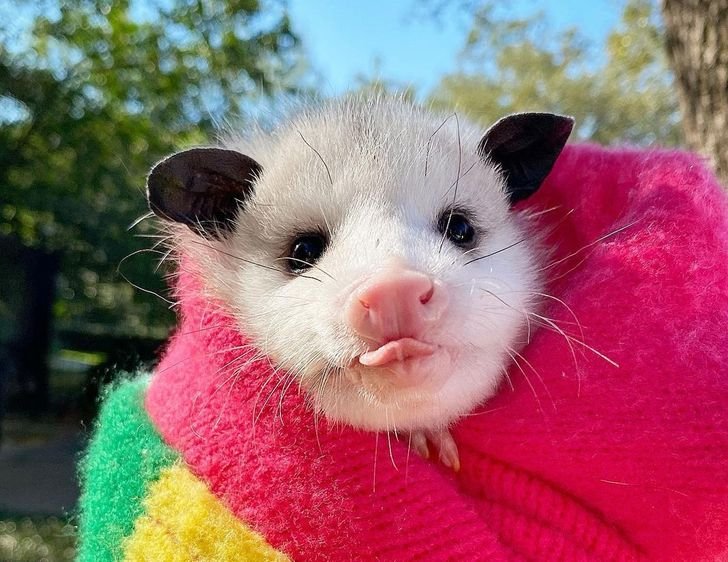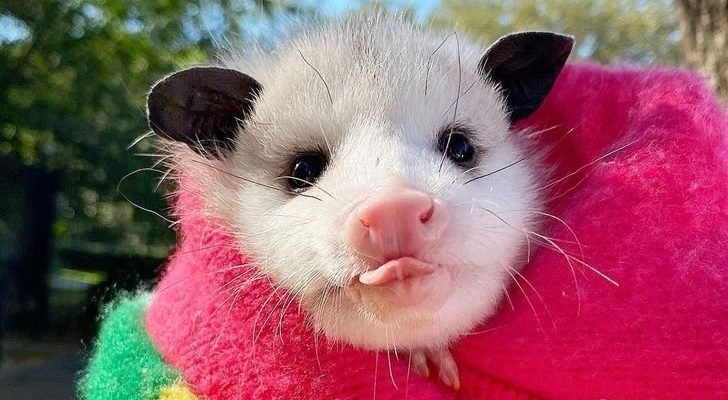
So, how do you measure the intelligence of an opossum? While we often think of intelligence in terms of problem-solving or learning, it’s helpful to look at how these creatures interact with their environment. Opossums are unique in their ways of navigating life, and their intelligence shows in various behaviors. From their impressive memory to their social structures, opossums have a rich inner world worth exploring.
Understanding Opossum Intelligence
When we talk about opossum intelligence, it’s essential to recognize that they’re different from traditional pets like dogs or cats. Instead of being trained to perform tricks, opossums rely on instinct and adaptability. Many might think of intelligence as a single trait, but with opossums, it’s a blend of natural instincts, memory, and learned behaviors.
Opossums have been shown to have decent problem-solving skills. For instance, they can learn to navigate mazes and remember paths to food over time. This ability reveals not just intelligence but also adaptability. Imagine a little opossum learning that a path lined with leaves leads to a snack groove—it remembers this and uses it to find food again.
Moreover, their unique survival strategies highlight a different type of intelligence. Opossums are known for “playing dead” when threatened. This behavior is more than a trick; it’s a last-ditch survival tactic. By mimicking the appearance of a sick or dead animal, they can avoid predators. It’s a fascinating example of using behavior to outsmart threats in their environment.
The Role of Memory in Opossum Intelligence
Memory plays a crucial role in how smart an opossum can be. Research indicates that opossums have strong spatial memory, which allows them to recall where they found food or where they encountered potential dangers. If you think about it, memory is like a mental map—one that tells them where to find resources and avoid risks.
For example, in a home setting, an opossum might remember the locations of food sources like pet bowls or garbage cans. This recall ability helps them thrive in urban environments, where food is often plentiful. As a result, they can adapt and thrive in areas where other wildlife might struggle.
Interestingly, studies have shown that opossums can remember experiences for long periods, even months. This long-term memory helps them cope with changing environments. If they learn that a specific area is dangerous, they’re less likely to return. This adaptability is part of what makes opossums so successful as a species.
Social Structure and Behavior
While opossums are primarily solitary animals, they do exhibit social behaviors that reflect their intelligence. They communicate using a variety of vocalizations, body postures, and even scent markings. These forms of communication help them establish territories and find mates when it’s time to breed.
One interesting aspect of their social behavior is their interaction during mating season. Male opossums will often compete for female attention, showcasing their strength and agility. This competitive behavior requires social awareness and understanding, highlighting their cognitive abilities in a social context.
Additionally, opossums are tolerant animals, often cohabiting with other species. They share their habitats with raccoons, skunks, and even birds. This peaceful coexistence suggests they have a level of awareness and adaptation that allows them to thrive without direct conflict.
Problem-Solving Skills
When it comes to problem-solving, opossums have their unique way of handling challenges. They might not be solving complex puzzles, but they do show cleverness in simpler tasks. For instance, if they encounter a barrier while seeking food, they may analyze their surroundings and find alternative routes.
A common example is when they get into trash cans. If they find an obstacle, like a lid, they tend to experiment by pawing at it or even climbing to get the food beneath. Their curiosity can lead them to try different tactics until they find a solution. This type of trial-and-error problem-solving is a sign of cognitive ability, even if it’s not elegant.
Moreover, their dietary flexibility also shows adaptability. Opossums are opportunistic feeders, meaning they’ll eat whatever is available. This can range from fruits and insects to small animals. The ability to adjust their diet based on available resources demonstrates an intelligent approach to survival.
Learning Through Experience
Opossums are capable of learning from their experiences, which is another hallmark of intelligence. They can adapt their behavior based on what they’ve encountered in the past. For example, an opossum that has had a negative experience with a human may avoid that area in the future. This ability to learn from both positive and negative experiences helps them stay safe.
In studies, opossums have shown that they can learn to navigate complex environments, adapting their strategies over time. If they find a reliable food source in a specific location, they may return, developing a routine. This learning process is driven by their need to survive and thrive, showcasing their cognitive skills in real-world situations.
When comparing opossums to other animals, their learning abilities might not be as flashy as a dog learning tricks. Still, their adaptability and ability to learn from their environment make them intriguing creatures. Each encounter shapes their behavior, leading them to make smarter choices in the long run.
So, how smart is an opossum? They might not be winning any IQ contests, but their cognitive abilities are genuinely fascinating. From impressive memory skills to adaptable problem-solving and social behaviors, opossums showcase a different kind of intelligence that allows them to thrive in diverse environments.
Understanding opossums and their unique abilities can help us appreciate these often-overlooked creatures. They navigate challenges with a cleverness that’s truly remarkable. Next time you spot an opossum, take a moment to think about the smart little survivor peeking back at you. After all, there’s a lot to learn from these resilient animals, and recognizing their intelligence can foster greater respect for them and the ecosystems they occupy.

